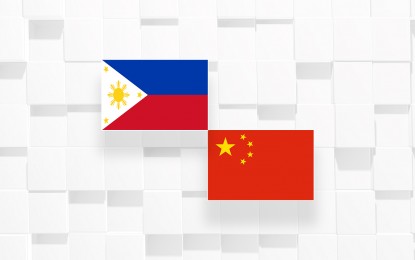
MANILA -- China, the world’s second largest economy, is seen by industry stakeholders and administration officials to continue playing an important role in the Philippines' future, to the benefit of more Filipinos.
This is amidst a second-quarter survey of the Social Weather Stations (SWS) indicating that about half or 51 percent of adult Filipinos have little trust, while 27 percent with much trust in China, for a net trust rating of -24, classified by SWS as poor.
Henry Lim Bon Liong, president of the Federation of Filipino Chinese Chambers of Commerce and Industry Inc. (FFCCCII), said China will continue to invest in the Philippines as it is doing in Africa.
“When all the China-financed infrastructure is finally finished, then we can ask ourselves again the same question, I’m sure the answer will be very different from now,” he said in a message to the Philippine News Agency (PNA) Thursday night.
Liong said China has emerged to become the country’s biggest trading partner, surpassing the United States and Japan, which he attributed this result to President Rodrigo Duterte’s “warm relationship” with China.
“Our President is very practical because he knows that alienating China at this point is not to our advantage but a shared understanding in the development of the West Philippine Sea will be the best solution for both countries,” he added.
Trade Secretary Ramon Lopez said “China is very supportive of our exports thrust and has opened up their market to our exporters.”
Lopez said Philippine exports to China grew about 8 percent, compared to 1 percent in 2018.
China’s foreign direct investment (FDI) to the Philippines also increased significantly from average 2010-2015 of USD 17 million to around USD 178 million in 2018, added Lopez, also the Board of Investments (BOI) chairman.
George Siy, Wharton-educated economic analyst and director at think-tank Integrated Development Studies Institute (IDSI), dispelled fears of a China invasion, instead noting developments highlight the Philippines is globalizing.
“Our neighbors are also experiencing and managing to capitalize on the economic opportunities brought about by the ‘China wave’ to help fast-track their countries’ development,” he said.
Siy noted that Chinese lending to the Philippines materialized with concessional loans granted for dam and irrigation projects meant to create 15,000 jobs and provide for the development needs of the country for decades.
“Although some Chinese workers are employed locally for their special skills, far more jobs are created for Filipinos by the Chinese-funded projects,” he said, adding that a wave of overseas Filipino workers (OFWs) is being recruited back to the country.
Siy said listed companies also declare hundreds of billions of pesos in additional rent and sales a year to the Chinese, in addition to the hundred billion more from Chinese tourists expected this year.
“(This) should redound to the direct benefit of local livelihoods (if we are to be more enterprising and able to upgrade our offerings),” he added.
But Siy admitted that like in any relationship, there are always issues that must be managed.
“Like a basket of fruits, there's always bad apples. We don't throw away the whole basket. We manage basket, remove bad apples and capitalize on the good apples,” he said.
“Sadly, some isolated issues are overblown due to emotions or vested interests pushing their personal interests. Many developments are not reported while negative ones are headlined,” he added.
The IDSI looks at productive and construction frameworks and viewpoints on global developments. (PNA)
